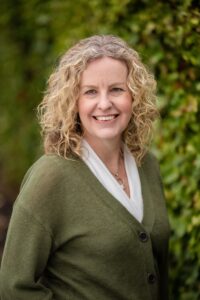The Twenty-fourth Sunday after Pentecost (Proper 27), November 12, 2023
October 25, 2023 | by Beth Hayward
| Reading 1 | Reading 2 | Reading 3 | Reading 4 | Reading 1 Alt | Reading 2 Alt |
|---|---|---|---|---|---|
| Matthew 25:1-13 |
First century sage, Rabbi Eliezer offered his disciples this simple advice, “Repent one day before your death.” This elicited the question, “How will we know when that day is?” To which the rabbi replied, “All the more reasons to repent today, lest you die tomorrow.[1] We don’t have all the time in the world. The intimate awareness of our own mortality is a key force in our lives. How do we live in the moment with an eye to an unknown future? How do we make the most of the time we have? How do we ensure that our lives count for something? As ones who seek to follow in the way of Jesus, how do we witness to the presence of Christ in our midst? How does the way we use our time relate to our faith?
Time ran out for the five foolish bridesmaids. As they waited for the bridegroom to finally arrive for the party, their lamps ran dry. They asked for help from the other five and were shut down. By the time they arrived back from the twenty-four-hour convenience store, it was too late. The party was underway, and the door was shut. Time runs out for each of us. It’s a hard truth to face in our death denying culture. We run out of time to get our act together. We run out of time to reconcile a broken relationship, to make that lifestyle change, to get to our to-do list; we run out of time to make a difference. But I wonder if this parable is not so much pointing to the fact that we run out of time as it is an invitation to consider how we use the time we have?
This parable sheds some light on how we are to wrestle with the reality of our finite lives on this earth. We need to peel back a few layers to grasp the nuance of what it teaches. Remember, Jesus’s parables would often take a story that everyone knew, change a detail or two and thereby completely alter the meaning of the familiar tale. In this instance the familiar story is a wedding party.
Everyone in First Century Palestine knew that the wedding feast was held in the evening, after the ceremony at the home of the bride. The guests and the bridesmaids would await the arrival of the bridegroom and would greet him with lamps as they processed to his home where the feast would begin. (I have no idea what happened to the bride between the ceremony and the reception, and it troubles me, but there you have it!) In this instance, the most apparent variation from the usual story is how late the bridegroom is in arriving to the party. Somewhere at the intersection of his lateness and the bridesmaids’ response, a glimmer of truth can be found.
The fact is, The Bible invites us to an understanding of time that is more Kairos than Chronos. It’s fascinating to think that what we now know scientifically about time is remarkably synchronistic with what Jesus was pointing to. Physicist Carlos Rovelli says there is no such thing as time. “Because everything that begins must end. What causes us to suffer is not in the past or the future: it is here, now, in our memory, in our expectations.” (The Order of Time by Carlos Rovelli) I wonder too is this parable offers some truth about the time we have, this very moment and how it is the coming together of God’s deepest longing with our greatest potential?
[1] http://www.patheos.com/resources/additional-resources/2011/10/bridesmaids-the-time-is-now-alyce-mckenzie-10-31-2011#x0Zw87uvsoFXkA95.99
Beth Hayward is an ordained minister with the United Church of Canada. Having served congregations from coast to coast in over 20 years of ministry, she describes herself as a practical public theologian. Beth is particularly interested in the ways Process preaching can inform authentic communal experience and transform the way people engage with their neighbours in a pluralistic world. You can connect with her through her website bethhayward.org

